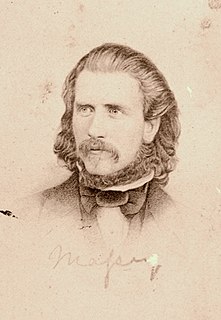A Quote by Freeman Dyson
I had the good luck a few years ago to visit the archeological site of Zippori in Israel ... I could see here displayed the Greek culture that Jesus decisively rejected, the same Greek culture that infiltrated the Christian religion soon after his death and has dominated Christianity ever since.
Related Quotes
The Jews had a love-hate relationship with the Greek culture. They craved its civilization but resented its dominance. Josephus says they regarded Greeks as feckless, promiscuous, modernizing lightweights, yet many Jerusalemites were already living the fashionable lifestyle using Greek and Jewish names to show they could be both. Jewish conservatives disagreed; for them, the Greeks were simply idolaters.
Greek customs such as wine drinking were regarded as worthy of imitation by other cultures. So the ships that carried Greek wine were carrying Greek civilization, distributing it around the Mediterranean and beyond, one amphora at a time. Wine displaced beer to become the most civilized and sophisticated of drinks—a status it has maintained ever since, thanks to its association with the intellectual achievements of Ancient Greece.
I suppose there is no place in the world where snobbery is quite so ever-present or where it is cultivated in such refined and subtle forms as in an English public school. Here at least one cannot say that English ‘education’ fails to do its job. You forget your Latin and Greek within a few months of leaving school — I studied Greek for eight or ten years, and now, at thirty-three, I cannot even repeat the Greek alphabet — but your snobbishness, unless you persistently root it out like the bindweed it is, sticks by you till your grave.
Since the 1960s, mainstream media has searched out and co-opted the most authentic things it could find in youth culture, whether that was psychedelic culture, anti-war culture, blue jeans culture. Eventually heavy metal culture, rap culture, electronica - they'll look for it and then market it back to kids at the mall.
Versatility is one of the few human traits which are universally intolerable. You may be good at Greek and good at painting and be popular. You may be good at Greek and good at sport, and be wildly popular. But try all three and you’re a mountebank. Nothing arouses suspicion quicker than genuine, all-round proficiency.
Christianity was neither original nor unique, but that the roots of much of the Judeo/ Christian tradition lay in the prevailing Kamite (ancient Egyptian) culture of the region. We are faced with the inescapable realization that if Jesus had been able to read the documents of old Egypt, he would have been amazed to find his own biography already substantially written some four or five thousand years previously.
I'm a pretty solid Christian. But even as an altar boy, I was always asking the bigger questions--you know: if God is, in fact, good, what is all this death I see? And if God is gentle, what is all this suffering I see? I've found some of the answers in Eastern religion. It explained my Christianity to me. Good and evil are the same thing. You can't have one without the other. It's the balance, it's the temperance of things.
I don't know what of our culture is going to survive, or if we survive. If you look at the Greek plays, they're really good. And there's just a handful of them. Well, how good would they be if there were 2,500 of them? But that's the future looking back at us. Anything you can think of, there's going to be millions of them. Just the sheer number of things will devalue them. I don't care whether it's art, literature, poetry or drama, whatever. The sheer volume of it will wash it out. I mean, if you had thousands of Greek plays to read, would they be that good? I don't think so.





































